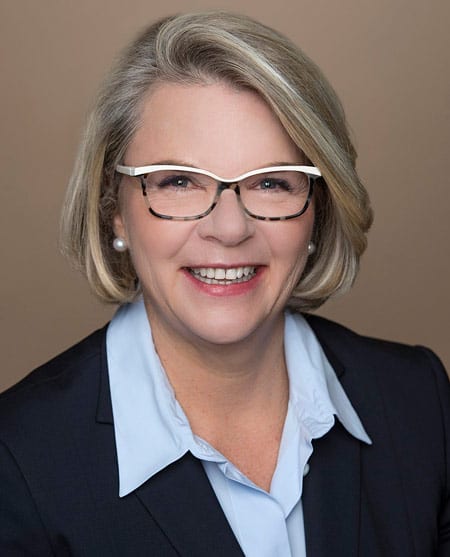
After only three years, Margaret Spellings is stepping down from the presidency of the University of North Carolina system, leaving behind a board that will likely not make it any easier for the next president.
Spellings took over the presidency of the University of North Carolina in the spring of 2016 under a cloud of protest. She did not have an academic background, she did not have a connection to North Carolina, and, most shocking, she was political—a part of President George W. Bush’s cabinet as US Secretary of Education. She is given the credit (or blame) for creating the No Child Left Behind teaching model during the Bush administration. Spellings also had ties to corporations such as the Apollo Education Group, the owner of the for-profit University of Phoenix.
The faculty had concerns, although some have conceded that she has proven herself to be more independent than predicted. Michael C. Behrent, an associate professor of history at Appalachian State University, said, “Margaret Spellings, while conservative, has a serious vision for higher education.”
Some members of the board of governors were not won over, however. Spellings had to spend an inordinate amount of time pushing back against them. Struggle seems typical of this board; Spellings replaced Thomas W. Ross, who was forced out of the presidency in early 2015 by the board for what may have been political reasons.
While Spellings says, “Three years is a good run,” and average incumbency has dropped, it is still a short stint: On average, college presidents surveyed by the American Council on Education in 2016 served in their current positions for 6.5 years, down from 8.5 years a decade before.
In August, now-former members of the board of governors published a letter castigating the current board, accusing them of becoming more and more politicized, and praising Spelling. They accused the board of micromanaging issues on multiple campuses, down to the staffing level:
Sign up for our free newsletters
Subscribe to NPQ's newsletters to have our top stories delivered directly to your inbox.
By signing up, you agree to our privacy policy and terms of use, and to receive messages from NPQ and our partners.
- “First, an individual board member took it upon himself to retain a third party to do a background check on the UNC President’s recommended candidate for Chancellor of Western Carolina University.”
- “Second, a committee chairperson allowed the unanimous recommendation of a candidate by her committee and her President to be overturned by the board without returning it to the President or the committee for their input and recommendation. This inappropriate action severely undermined both.”
The board proposed to hire its own staff, separate from the university’s, and take over the offices on the Chapel Hill campus, moving out the 265 UNC employees. The UNC staff answers to the college president and covers research, legal affairs, student affairs, financial management, and government relations, with a budget of $65.4 million.
In an example of the board making decisions even down to the academic programs’ functions, last year it voted to prevent the Center for Civil Rights, located within the UNC Law School, from litigating cases. The Center offers legal support to minority and low-income organizations. The board moved on it even after the chancellor of the University of North Carolina at Chapel Hill, Carol L. Folt, published support for the center’s litigation services. (For more on Folt, you can read Diandria Barber’s piece on the Silent Sam statue controversy.)
When Spellings took over, the state was in the middle of dealing with policies regarding Confederate statues on its campuses and bathroom use by transgender students. Still, she was able to push through a college affordability measure, NC Promise, which greatly reduced the tuition on three of the 17 UNC campuses.
Spellings did not say what led to her decision to leave the position. “All leaders are for a time,” Spellings says. “I came into this position knowing that the most lasting contribution I could make was to help create a culture of higher expectations for the citizens of this state—and we have done just that.” Harry Smith, chair of the board of governors, said the decision was hers, and they arrived at a “mutual agreement that it is now the right time for a new leader for our next chapter.”
Several hours after announcing that she would step down, Spellings led a conversation on the Chapel Hill campus with John B. King Jr., US education secretary under President Barack Obama, about the future of education. Pressed on how higher-education governance in North Carolina had affected her ability to do her job, she largely demurred.
“The people who are appointed to governing boards in any state, including North Carolina, care deeply about the enterprise,” she said. “Have we created the kind of structure that allows them to move the needle in the most productive way? Are we organized for success?”
The board will appoint an interim president.
As far as public higher education, Spellings says, “Governance is always being calibrated and recalibrated, over and over.” Is there anyone willing to work with this board and recalibrate?—Marian Conway












